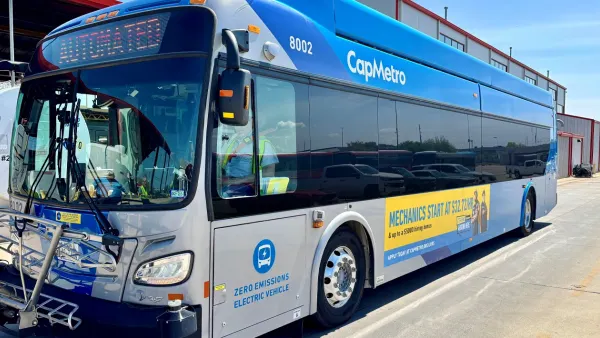Dive Brief:
- TransitScreen, a Washington, DC-based software company that offers real-time displays of transportation options, announced Monday it is launching a mobile app, CityMotion.
- Until now, TransitScreen information was only hosted on digital screens that are outfitted in commercial buildings and lobbies. However, the TransitScreen team realized an additional resource was needed for its users. "[Y]our need for information doesn't stop as you exit your building in the morning," the team wrote in a blog post. "Starting now, you'll have all the convenience of TransitScreen right in your pocket."
- Only folks who live or work in a building that uses TransitScreen will have access to the app, which is currently available for iOS and Android.
Dive Insight:
Since its launch in 2013, TransitScreen has worked to curate local, real-time mobility information into a single hub to simplify trip planning and public transit use. In a June interview with Smart Cities Dive, TransitScreen CEO and co-founder Matt Caywood touted the company's unique business model — selling transit information to real estate clients — as "scrappy," noting, "We're able to make a very large impact on smart cities while still being a very small and lightly-funded company."
And while the company was already bringing an innovative solution to cities through its digital screens, this business move recognizes that we are living in a mobile-first world where phone apps are a primary resource for information. TransitScreen's efforts to "cut through the noise" of mobile app options by offering all local transportation information through CityMotion is intended to save users time wile also "increasing their awareness of transportation options."
Aside from CityMotion, TransitScreen has developed other helpful applications to improve how residents get around town, including MobilityScore, a tool that ranks city locations based on access to mobility services. The company also prioritizes its social media accounts and regular e-mail newsletters to remain vocal on the evolution of the urban experience. "We started with this unique public information solution but we’re really taking it to wherever people are making decisions based on mobility," Caywood told Smart Cities Dive.











